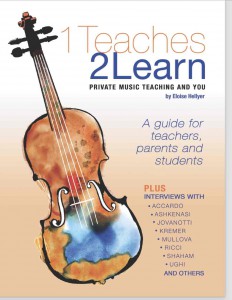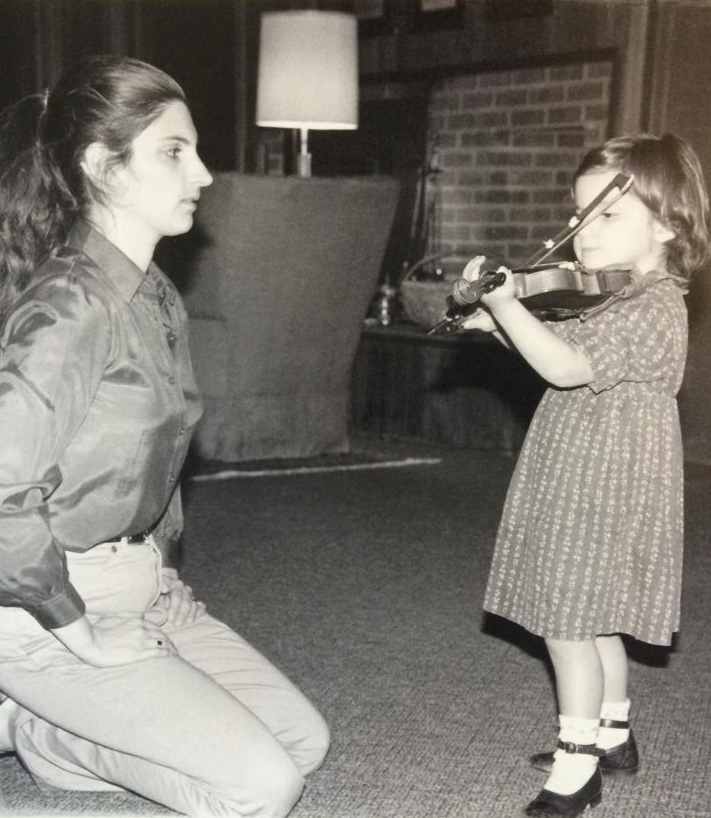Getting Our Children To Reason Before Reacting
Sometimes I have students who don’t want to reason. In fact, some of them can be outright resistant to even trying; I may ask a simple question which requires a small amount of reasoning and I see them go to their default mode: “memory.” But then when they don’t find the answer there, mild panic ensues and the next thought is, “I don’t know this and I can’t do it,” at which point everything shuts down. This is such an ingrained chain reaction that I doubt it ever occurs to them that they are shooting themselves in the foot.
Until, of course, I point it out to them.
But why does this happen in the first place? At first I thought it was how they were being taught in school, that it was some sort of cultural issue or even that their parents were discouraging them in some way (always easy to blame the parents!). While I am not convinced that the school systems where I live teach children to see patterns and to think logically – much is based on memory here – I am reasonably sure that the parents have nothing to do with it. And neither do self-esteem issues in most of these cases.
The problem, I have found, is lazy brain.
Now before you think I am passing judgement on these kids, know that research says that our brains consume up to 25% of our caloric intake and 20% of the oxygen we breathe – and this high octane organ weighs only 1.4 kilos (three pounds). It’s like having a Ferrari for a brain and a Fiat 500 for the rest of you. In order to make sure we have enough fuel for the rest of our bodily functions, the brain saves energy the best way it can by doing what is easy: “less is more.” So somewhere along the line of their general education these students have encountered things they found difficult and then repeatedly took the easy way out. Their initial lazy brain response of, “Why bother?” has become the habitual reaction of, “I can’t do it.” And what are habits for? Saving energy. It’s just plain easier to think you can’t do something so you don’t have to waste energy trying.*
So, what’s a teacher to do?
- Make sure your students are aware of their thought processes and that they are are reacting instead of acting when they resist thinking through a problem. You can easily get your students to agree with you that being an “actor” in life is a lot better than being a “reactor.”
- Convince them that stopping and thinking before reacting will save time and effort and will become a habit if they do it, say, 60 times over the course of the week’s practice. That’s only 10 times a day!
- Ask very simple questions that you know they can figure out the answer to with a minimum of effort. I am constantly amazed at some of my students’ resistance to reasoning about even the easiest questions, so they may need some prodding or you may have to break your questions down into even easier ones to get them going.
- Tell them that you always ask easy questions and would never ask them something they couldn’t figure out. Some of these children have school teachers who try to find out what their students don’t know instead of what they do, terrifying them by asking trick questions. First your students have to trust you and then they can trust their own reasoning capabilities. And even if they give you a wrong answer, you tell them, no one is going to die – or get a bad grade.
- Show them how much and how quickly you reason by playing some impossibly fast passage and then explaining all your mental processes while you played it. When they see that it takes you much longer to explain what you were thinking while playing that passage than it does to play it, and that you are doing all this reasoning automatically, they will realize that your good mental habits make it possible for your conscious mind to think about the music instead of instrumental technique. Of course, it is imperative to explain to your students that you were not born this perfect being that they see standing (or sitting) in front of them and that you had to go through exactly what they must – even if this is not altogether true; some of us are born with faster brains than others, more natural mental and physical facility and desire to reason, but never mind – the process is still the same.
- Explain to your students that THEY aren’t lazy but their brains are. Students are relieved to know this. Instead of feeling cursed with some awful character or personality trait they feel they can do nothing about, they now know that reasoning instead of reacting is just another habit to acquire, like a correct bow hold. This also makes them view the brain as just another part of their bodies that has to acquire good habits in order to play well.
- Get them to understand that your job is to train them to think like violinists which will make almost every other endeavor they take on much easier. Violinists are constantly taking short cuts, seeing patterns and thinking so fast that neurologists cannot measure the velocity of their synapses.** These habits come easier to some of us than others (which I don’t tell my students), but they can be learned. In any case, i think it is safe to say than anyone’s brain is sped up by learning to play the violin.
- Make them notice how many once difficult things, like just holding the violin and the bow correctly, they now do well without thinking or being reminded by their parents and teachers. How they have already learned so many good habits that they now take for granted – habits that have fooled their lazy brains into accomplishing something.
- Use an example from some other part of the student’s life, like good table manners (okay, kids don’t always see the use of them, but their parents usually make a big fuss about this issue and love it when you bring it up) to show that once they have acquired them, they can have dinner with heads of state and make scintillating conversation without worrying how to behave.
- Explain that the brain is like a muscle – even if you start out with a high IQ, it will atrophy if you don’t exercise it. Use it or lose it.
Learning how lazy everyone’s brain is (including mine) has changed my teaching. Now, every time parents tell me how mentally lazy their child is, I respond that we are all lazy because our brains are, that research bears this out and the only way to outsmart our brains is to make the effort to reason until it becomes a habit and thus the brain’s automatic default mode. It really does make a difference when parents realize that everyone suffers from lazy brain – it’s in our evolutionary hardware – and they become more compassionate and less critical in helping their children overcome mental inertial so they can learn to think like a violinist.
Post author: Eloise Hellyer
*Please see these two links: Eric Barker in his excellent blog, “Barking up the Wrong Tree” strikes again! http://www.bakadesuyo.com/2012/04/what-do-we-do-with-our-leisure-time-what-trul/ which talks about teenagers not doing things that give them more satisfaction because of the initial effort required to start doing them and http://www.bakadesuyo.com/2016/10/how-to-resist-distraction/ about lazy brains
**Please don’t ask me for a source. I read this fact many years ago, long before blogging even existed and I can’t find a reference on the internet. However, two parents who are therapists told me a few years ago that they heard the same thing at a conference on neurology, much to their surprise – they thought I was making it up when I told this to their daughter.
Share this:
Buy it on www.sharmusic.com - eBook format, avaliable worldwide, paperback in North America
COPYRIGHT
ABOUT
A music teacher’s thoughts and observations on the teaching and the study of a musical instrument, hoping to be of help to parents, students and teachers.
PHOTO
AWARDED TOP 25 VIOLIN BLOG
CATEGORIES
TAGS
ARCHIVES
-
Agosto 2022
Agosto 2023
Agosto 2024
April 2015
April 2016
April 2017
April 2019
April 2020
Aprile 2022
Aprile 2023
Aprile 2024
August 2014
August 2015
August 2016
August 2017
August 2018
August 2019
August 2021
December 2014
December 2015
December 2016
December 2017
December 2018
December 2019
December 2020
Dicembre 2022
Dicembre 2023
Dicembre 2024
Febbraio 2022
Febbraio 2023
Febbraio 2024
February 2015
February 2016
February 2018
February 2019
February 2020
February 2021
Gennaio 2022
Gennaio 2023
Gennaio 2024
Giugno 2022
Giugno 2022
Giugno 2023
Giugno 2024
January 2015
January 2016
January 2017
January 2018
January 2019
January 2020
July 2015
July 2017
July 2019
June 2016
June 2017
June 2018
June 2019
June 2020
June 2021
Luglio 2022
Luglio 2023
Luglio 2024
Maggio 2022
Maggio 2023
Maggio 2024
March 2015
March 2016
March 2017
March 2018
March 2019
March 2020
March 2021
Marzo 2022
Marzo 2023
Marzo 2024
May 2015
May 2016
May 2018
May 2019
May 2020
November 2014
November 2015
November 2016
November 2017
November 2018
November 2019
November 2021
Novembre 2022
Novembre 2023
Novembre 2024
October 2014
October 2015
October 2017
October 2018
October 2019
October 2020
October 2021
Ottobre 2022
Ottobre 2023
Ottobre 2024
September 2014
September 2015
September 2016
September 2018
September 2019
September 2020
September 2021
Settembre 2022
Settembre 2023
Settembre 2024
RECENT POSTS
Terry G and Me, or Terry Gilliam on Where (or What) Practicing the Piano Will Get You…
The Teaching We Don’t Do Is More Important Than We Think
Overwhelmingness or What Teaching and Motherhood* Have in Common
Cellphone Serenity
How to Build Your Reputation – the Kind You Want
Desperate Times, Desperate Measures. Or How to Deal With Your Strong-Willed Stubborn Student and Survive
“Why Does My Teacher Get So Frustrated?” Letter to a Perplexed Student
Mount Rush-no-more….And How to Get There
Realizzato con VelociBuilder - Another Project By: Marketing:Start! - Privacy Policy




